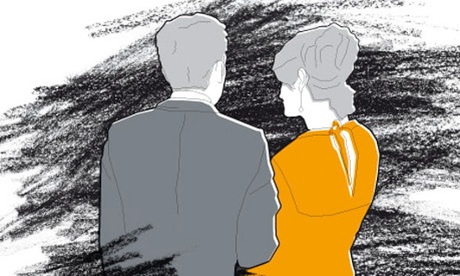
One should never treat other people’s tragedy as a lesson, but with so many countries at war, I am frequently reminded of how lucky I am, simply because I don’t have to bring my family up under fear of attack.
Cities that have been destroyed could one day be rebuilt, but the lives that have been lost – and the impact of that loss on the people whose families now have gaping holes – cannot be so easily replaced or repaired. And so I say it again. I say to myself, despite all my travails, perceived or real: “How lucky I am.” And sometimes I make my children say it when we’re driving in the car, and they are demanding a burger or a new toy or a trip to a theme park. I say the words my mother said to me, when I saw images on the news or in the paper of children dying of disease and starvation in Ethiopia: “We have to remember how lucky we are.”
The BBC’s excellent reporter Lyse Doucet made an astonishing television programme recently about the lives of a few Syrian children and their families on both sides of the civil war, and how it has affected them. They gave their first-hand accounts of how it feels to lose not just their homes and their schools, but members of their family, their community – in fact, all life as they once knew it.
Inevitably their stories are bleak. Two girls visited their mother’s grave with their father and tidied up the debris left after the site had come under further attack from the enemy, making it clear that even the dead cannot rest peacefully.
But there was hope, and one thing fascinated me as I watched them attempting to live in devastation: the rituals. For most of the children, whether from families that supported the Syrian regime or those trying to flee it, their daily rituals were the activities that seemed to bring a very abnormal way of life back to something more familiar. One girl gave a brief tour of her local area to Lyse, and smiled when she mentioned the certain day of every week that she was allowed to play with her siblings on a particular patch near her home; the marking of a birthday with a homemade cake was something to celebrate, and the daily customs associated with their meals and preparing food was significant.
Mealtimes, whether they were held in the metal containers provided to Syrian refugees as accommodation on the Turkish border, or in a single room used as a temporary home for a family of six (where sleeping, eating and playing all take place), mealtimes, with whatever food was available, were times to savour. Of course, meals don’t always happen, when the simple rituals that once kept things going can’t be performed because the food runs out. I don’t want to become a parody of a middle class parent by telling my children how their leftovers could be eaten by the starving children of some famine-stricken region – when I have tried this line, they have offered to send the food there themselves. But watching how families continue to eke out an existence in the least promising surroundings is a reminder of how resilient human beings are. And again, how lucky we are not to have to practice this resilience on a day-to-day basis. In a way, the issues that befall us in a safe developed-world democracy seem trivial compared to the upheaval that the millions of refugees around the world endure. But during any sort of trauma, the rebuilding of a life in the aftermath of devastation often relies heavily on ritual. The rituals that keep things moving, that keep communities thriving, that keep the human heart beating because it still has something to beat for.
Rituals don’t protect you from bombs or disease or poverty. But watching those people whose lives have become unbearable and unmanageable through no fault of their own perform the simple things that I am lucky enough to take for granted, simple things that I often forget to see as rituals at all, makes me feel extremely fortunate.
So when I eat around a table, when I read my children their bedtime stories in peace, when I take a walk around the block without listening for an air raid siren, when I get dressed in the morning in clothes of my own choice, I remind myself that these are both rituals and privileges. Not grand ones, or ones that often get mentioned. But rituals all the same.

